Alice Elgie reports…
IT SEEMS like Christine Wood was blessed with the right name for her trade, busy as she is painting not only traditional canalware but also restoring interesting, unusual and antique pieces of furniture.
She shared with me: “When I was 14 I saved my pocket money and bought a wood turning lathe and eventually went on to study fine craftsmanship and design in wood at Rycotewood College, Thame. My first job was working for a toymaker who also specialised in musical instrument making and I then went on to restore early country furniture in Burford, before setting up my own workshop in Braunston.”
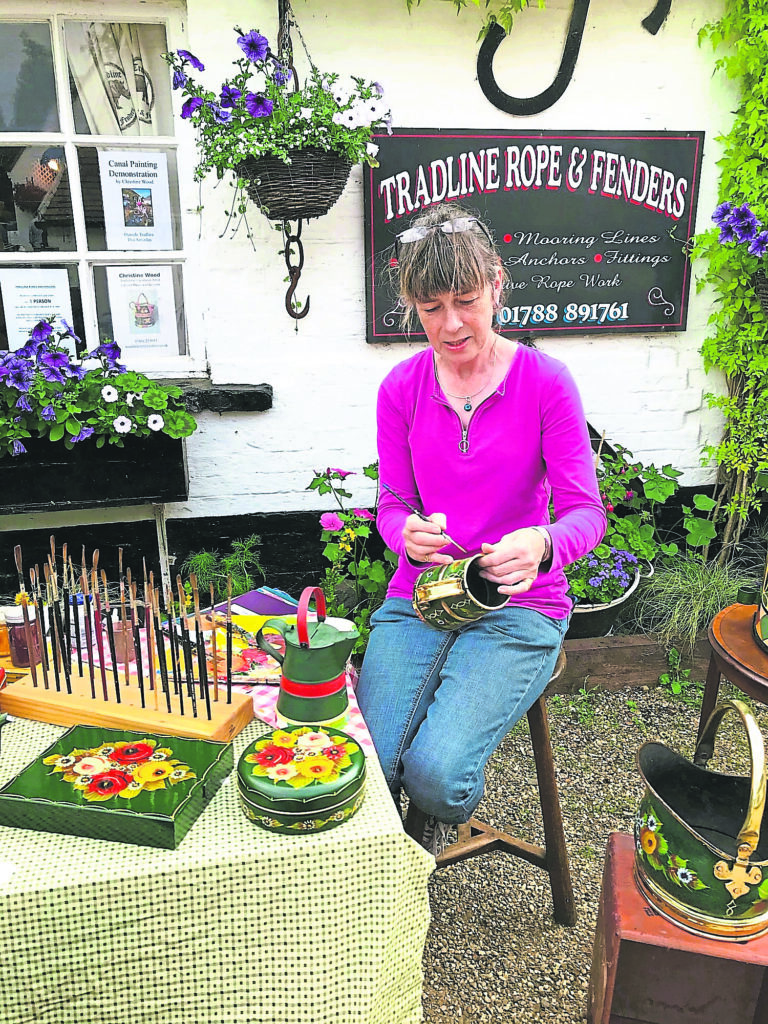
Narrowboats initially came into play at a very early age as Christine remembers a school trip on the Kennet & Avon when she was seven years old: “I loved it and bought my mother a plant pot painted with roses.” Fast forward to 1990 and aged 23 Christine bought herself a new narrowboat shell, fitting it out at weekends: “At the time I was living and working in Oxfordshire but house prices were unattainable so I decided on a narrowboat shell instead.” This project ignited the beginnings of her interest in canal art but when in 1996 Christine began working for Rex Wain at Brinklow Boat Services and met well-respected boat painter and sign writer, Ron Hough, that interest increased tenfold: “I would visit him in Braunston to collect work he painted to sell in the shop at the boatyard and I became fascinated with his work. When he retired I decided to teach myself how to paint.”
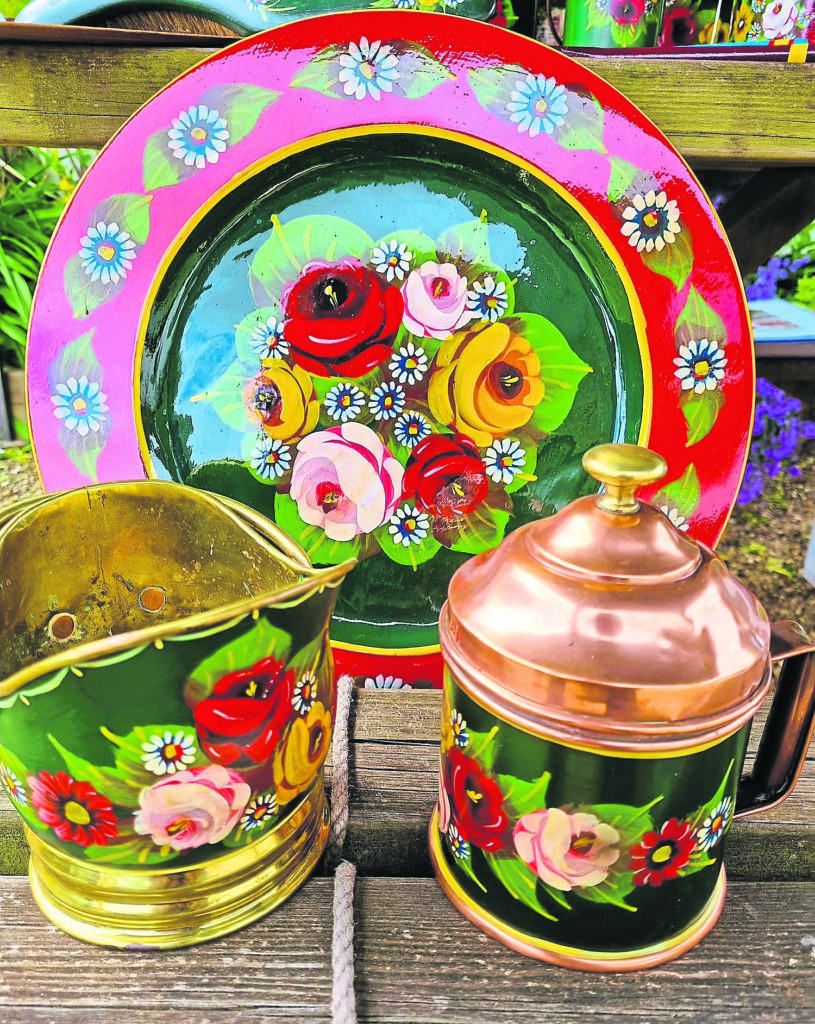
Starting out with the book Flowers Afloat, by Tony Lewery, Christine practised every day: “I found myself drawn to Frank Nurser’s work. He taught Percy Foster, Dennis Clark, Ron Hough, George Crawshaw and others over the years and you can see his influence in all the painters that were apprenticed to him.” This passing down of painting styles through generations happened up and down the country with each boatyard having its own excellent sign writers, painters and decorators. Christine’s work is heavily influenced by the ‘Braunston style’ of painters who worked at the Nurser Brothers’ Boatyard; however, with time and practice her own individual style has developed and she now specialises in traditional painted decoration, restoration of painted ware, wood graining (also known as scumbling) and back cabin decoration.
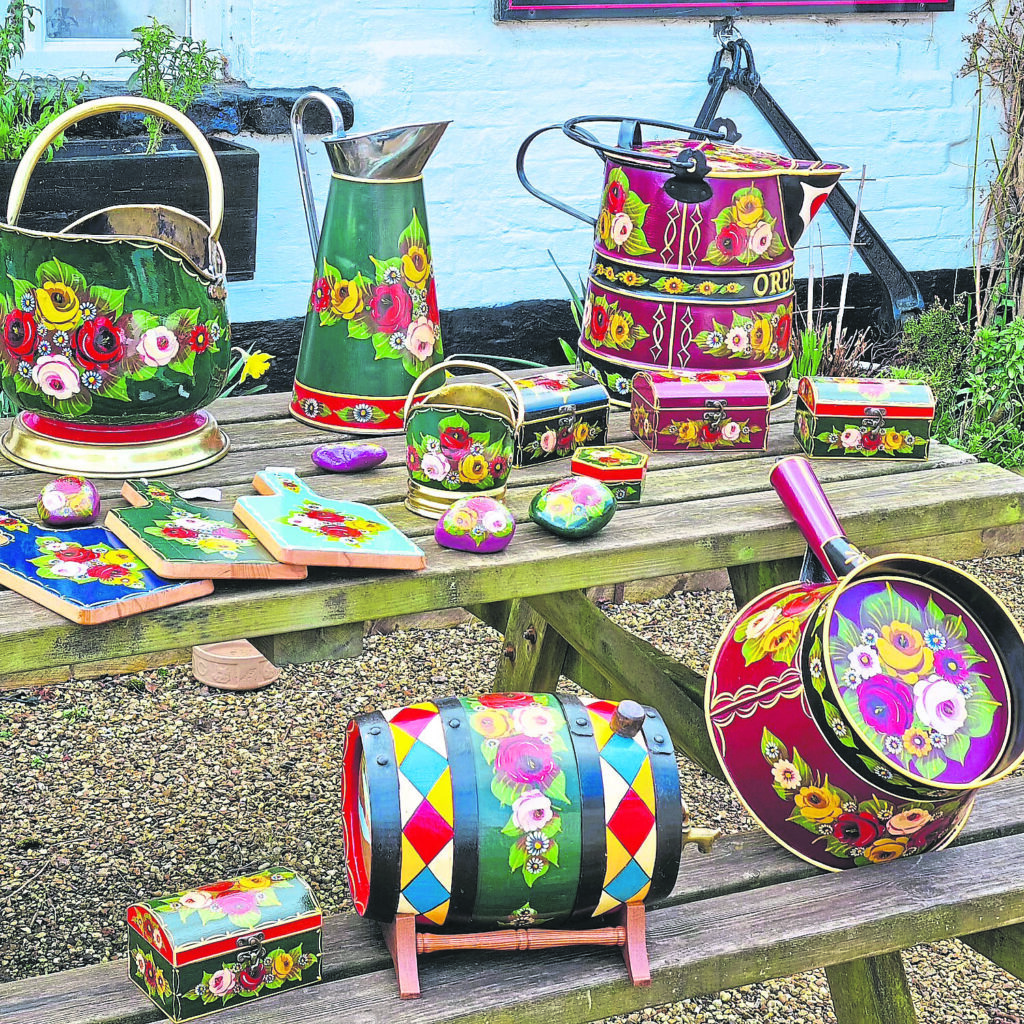
Christine told me a little more about this work: “The back cabins were made from whatever wood was to hand, which was then ‘scumbled’, a traditional technique used to make a painted surface look like real wood. A plain sheet of plywood can be scumbled to look as though it were panelled and made from tongue and groove boards, so a simply fitted back cabin made mostly from plywood can be made to look as though it is constructed in a traditional way and decorated to look very attractive.”
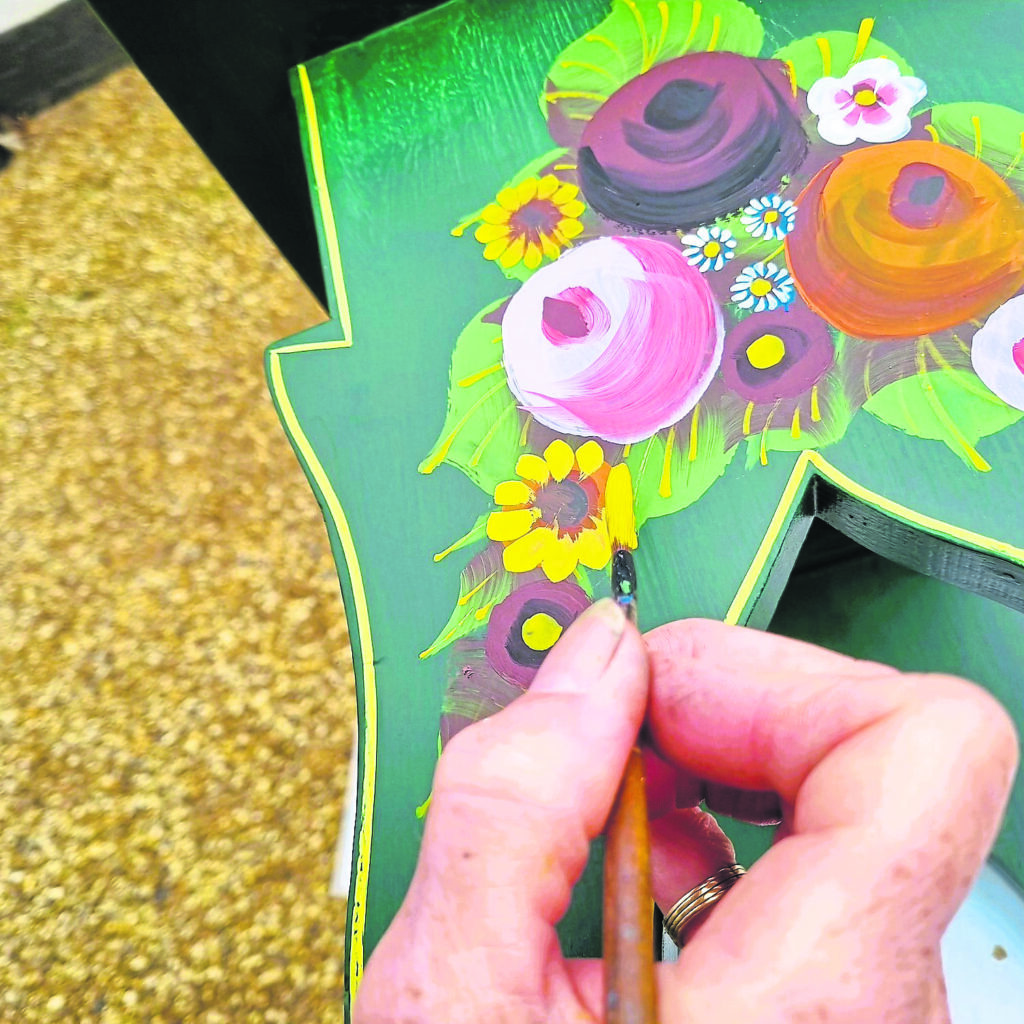
Having a background in woodwork has certainly helped broaden Christine’s skillset and in her own furniture restoration workshop she uses many techniques such as marquetry, re-veneering, re-polishing, turning, steam-bending. This experience with antiques transfers effortlessly to painting canalware: “Furniture restoration requires the repairs to be colour matched and ‘antiqued in’ so that they are not visible. Similar techniques I have developed work well when I restore old painted items matching colour and finish. Over the years paint lifts and deteriorates especially when applied to galvanised metal such as hand bowls and water cans. These were items used every day so understandably the paintwork would get damaged but I can colour match and copy the original painting then ‘antique in’ paintwork to match. The best restoration you do will not be seen.”
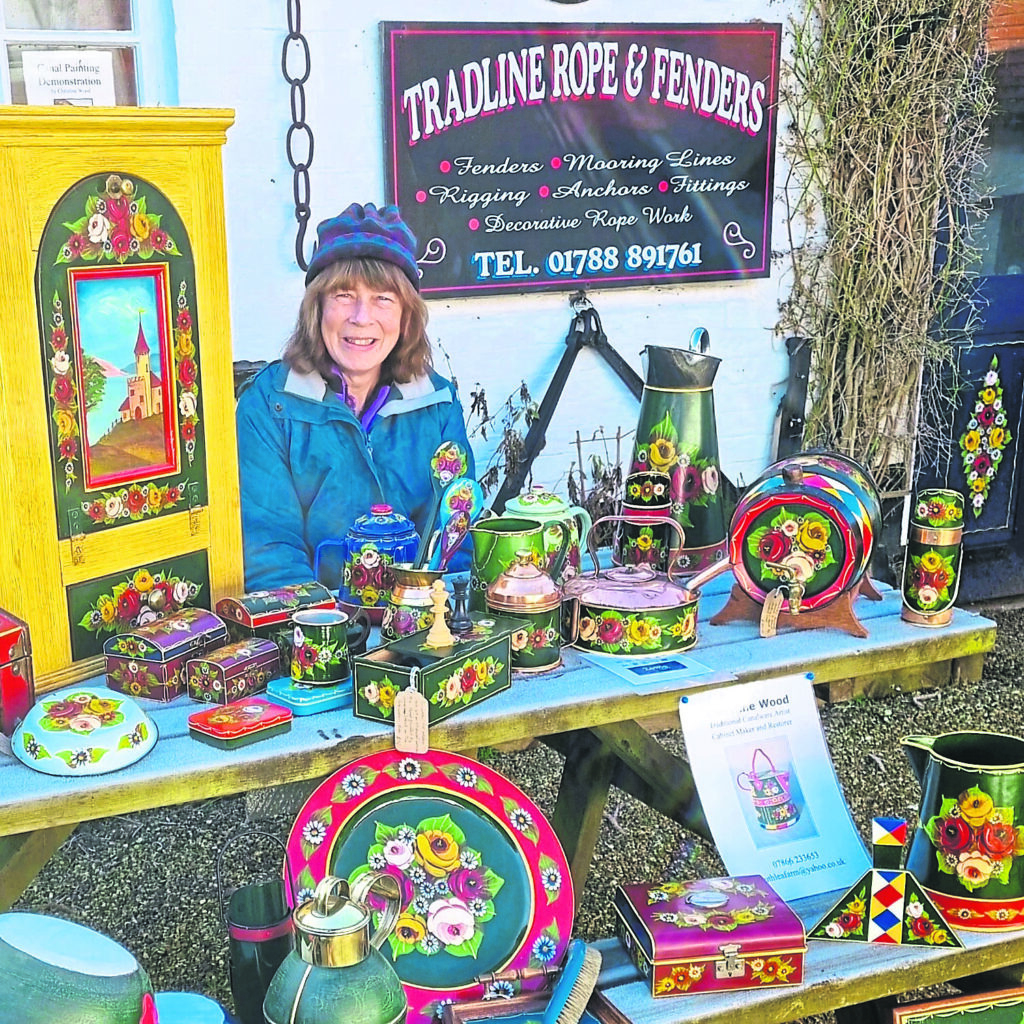
Keeping crafts like this alive and well on the canals is hugely important and Christine is certainly a beacon for doing so, as well as perhaps an inspiration to try your own hand at artistry? Her advice to anyone interested in learning to paint roses and castles would be to begin looking into the history of canal painting, as well as purchase a copy of Flowers Afloat: Folk Artists of the Canals. She also has some further tips: “Study artwork at museums such as Stoke Bruerne, Foxton, and Gloucester Docks. Study the layout, colours and styles of roses by artists such as Frank Nurser, Ron Hough, Frank Jones, Isaiah Atkins, and go on a course, preferably with a well-respected and influential canal boat painter such as Phil Speight.”
You can catch up with Christine for more inspiration and buy her canalware; most Saturdays you’ll find her on her stall outside Tradline Rope & Fenders in Braunston Marina.
Website: www.traditionalcanalware.co.uk
Facebook: Christine Wood, Traditional Canalware
Instagram: @traditionalcanalware – @thewoodrepairshop
Upcoming shows: Braunston Historic Boat Rally, June 28/29 (outside Tradline Rope & Fenders stall).



